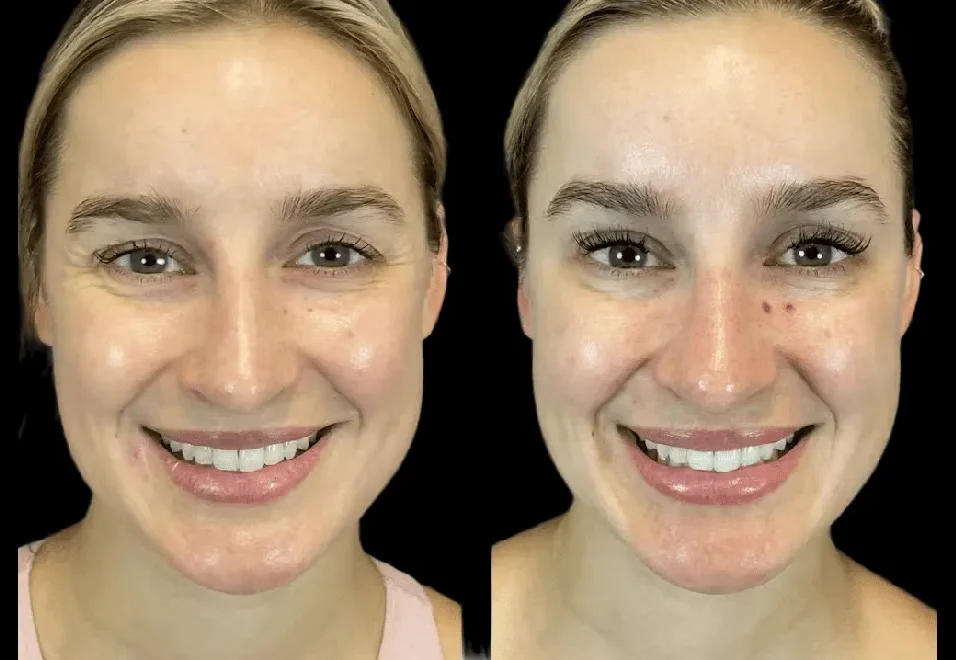Sugar is everywhere. From the sweeteners in your coffee to the hidden sugars in processed foods, it’s easy to consume far more sugar than you realize. While sugar can provide quick energy, an excess of it can lead to a variety of health problems. Understanding how sugar affects your body and how much is too much is key to making healthier choices that promote long-term well-being.
What Happens to Sugar in Your Body?
When you eat sugar, it is absorbed into your bloodstream and broken down into glucose. This glucose is then transported to your cells and used as a source of energy. The body regulates glucose levels through insulin, a hormone produced by the pancreas. However, when too much sugar enters the bloodstream, your body struggles to keep up with the demand for insulin. This can lead to various health complications.
Short-Term Effects of Excess Sugar Intake
- Blood Sugar Spikes and Crashes: Consuming large amounts of sugar causes a rapid increase in blood glucose levels. This spike is often followed by a sharp drop in blood sugar (known as a “sugar crash”), leaving you feeling tired, irritable, and hungry. These fluctuations can lead to mood swings and cravings, making it harder to maintain a balanced diet.
- Increased Hunger: High sugar intake can interfere with the body’s hunger-regulating hormones. After consuming sugary foods, your body may experience an initial feeling of fullness, but this quickly fades, leading to increased cravings and overeating. This cycle makes it more difficult to maintain a healthy weight.
- Inflammation: Excess sugar can contribute to inflammation in the body. Chronic inflammation is a significant factor in the development of many diseases, including heart disease, diabetes, and certain cancers. Sugar can stimulate the production of pro-inflammatory molecules in the body, contributing to this condition.
Long-Term Effects of Excess Sugar Intake
- Obesity and Weight Gain: One of the most well-known consequences of too much sugar is weight gain. When you consume sugar, it is either used for energy or stored as fat. If you consistently consume more sugar than your body needs, the excess is stored as fat. Sugar-rich diets are also often calorie-dense but lack important nutrients, leading to overeating and an increased risk of obesity.
- Increased Risk of Type 2 Diabetes: Over time, excessive sugar intake can lead to insulin resistance, where the body no longer responds properly to insulin. This forces the pancreas to produce more insulin, eventually leading to elevated blood sugar levels. Consistently high blood sugar levels increase the risk of developing type 2 diabetes.
- Heart Disease: High sugar intake has been linked to an increased risk of heart disease. Diets high in sugar can raise blood pressure, increase inflammation, and lead to high levels of fat in the liver. All of these factors contribute to an increased risk of cardiovascular disease. In fact, studies show that people who consume high amounts of sugar are at a greater risk for developing heart disease and stroke.
- Fatty Liver Disease: Consuming too much sugar, particularly fructose (a type of sugar found in processed foods and sugary drinks), can overwhelm the liver. The liver processes fructose, but when there’s too much, it can lead to non-alcoholic fatty liver disease (NAFLD). This condition can cause liver damage, cirrhosis, and even liver failure in severe cases.
- Tooth Decay: Sugar is a primary contributor to tooth decay. The bacteria in your mouth feed on sugar and produce acid that erodes tooth enamel. This leads to cavities and other dental issues. If sugar is consumed frequently without proper oral hygiene, it can severely damage your teeth over time.
- Mental Health and Mood Disorders: There is a growing body of research indicating that high sugar consumption can contribute to mental health issues. Diets high in sugar can exacerbate symptoms of depression and anxiety. Sugar can also affect the brain’s reward system, creating a dependency on sweet foods and leading to sugar cravings, much like an addiction.
How Much Sugar Is Too Much?
The recommended daily intake of added sugars varies based on age, sex, and lifestyle. According to the World Health Organization (WHO), no more than 10% of your total daily calories should come from added sugars. For a typical adult with a 2,000-calorie diet, this translates to about 50 grams (12 teaspoons) of sugar per day.
Do you want to visit Char Dham? Char Dham Travel Agent is the best place to plan your Char Dham tour. You can book the tour from here.
However, the American Heart Association (AHA) recommends even stricter limits:
- For women: No more than 25 grams (6 teaspoons) of added sugar per day.
- For men: No more than 38 grams (9 teaspoons) of added sugar per day.
Unfortunately, many people consume far more than this. A can of soda, for example, can contain as much as 39 grams of sugar—already exceeding the daily recommended limit for women. Packaged snacks, cereals, and sauces are also often loaded with added sugars, making it easy to exceed the recommended intake without realizing it.
Sources of Hidden Sugars
Sugar is often hidden in processed foods and drinks, making it difficult to keep track of how much you’re consuming. Here are some common sources of added sugars that might surprise you:
Would you like to visit Indiar? A tour operator in India is the best place to plan your tour. You can book a tour from here.
- Beverages: Soft drinks, fruit juices, sports drinks, and sweetened coffees can be packed with sugar.
- Breakfast Cereals: Even seemingly healthy cereals can contain high amounts of added sugar.
- Sauces and Condiments: Ketchup, salad dressings, and barbecue sauce often have hidden sugars.
- Packaged Snacks: Granola bars, cookies, and flavored yogurts are often loaded with sugar.
- Processed Foods: Frozen meals, pizza, and packaged bread may contain added sugars to enhance flavor and preserve freshness.

A Nutritionist’s Perspective on Managing Sugar Intake
Nutritionists emphasize the importance of balance when it comes to sugar. While it’s impossible to completely eliminate sugar from yone’sdiet, a nutritionist would advise feducing added sugars—those found in processed foods, sweetened beverages, and snacks.
Many people underestimate hthe amount of sugar they consumedaily, especially from sources like sugary drinks and packaged foods, says a nutritionist in Singapore. simple change like switching from soda to sparkling water can significantly reduce sugar intake and improve overall health.
Nutritionists also hemphasizethe importance of whole foods—fruits, vegetables, and whole grains—over processed snacks that often contain hidden sugars. For those struggling with cravings, a nutritionist might recommend natural sweeteners like stevia or monk fruit,or using fruits like apples and bananas in baking to creducerefined sugars.
Would you like to visit Haridwar? Travel agents in Haridwar are the best place to plan your trip. You can book your tour right here.
When you reduce sugar, you may experience better energy levels, improved skin, and even a mood boost,” says the nutritionist. “The key is understanding how much sugar is in the foods you eat and making small, consistent changes over time.
How to Reduce Your Sugar Intake
- Read Nutrition Labels: Always check food labels for “added sugars.” Be aware that sugars can appear under many names, including cane sugar, high fructose corn syrup, agave nectar, and honey.
- Opt for Whole Fruits: Whole fruits, such as apples, berries, and oranges, contain natural sugars but are also packed with fiber, vitamins, and antioxidants. Unlike fruit juices or dried fruit, whole fruits are a healthier choice.
- Cut Back on Sugary Beverages: Soda, sweetened coffee, and energy drinks are major contributors to excessive sugar intake. Choose water, unsweetened tea, or sparkling water instead.
- Cook at Home: Preparing your own meals gives you full control over the ingredients. Use fresh produce, lean proteins, and healthy fats while avoiding packaged foods that may contain hidden sugars.
- Find Healthier Sweeteners: Replace refined sugar with natural sweeteners like stevia, monk fruit, or maple syrup, which have a lower glycemic index and fewer calories.
- Gradually Reduce Sugar: If you have a sweet tooth, try gradually reducing your sugar intake instead of cutting it out all at once. This will help your taste buds adjust and reduce cravings over time.
The Benefits of Reducing Sugar Intake
- Weight Loss and Maintenance: Cutting back on sugar can help you maintain a healthy weight and reduce the risk of obesity. When your body is no longer flooded with excess glucose, it becomes easier to lose weight and keep it off.
- Improved Heart Health: Reducing sugar intake can lower your risk of heart disease by reducing high blood pressure, lowering triglyceride levels, and improving cholesterol profiles.
- Better Blood Sugar Control: Lowering your sugar intake helps keep blood glucose levels stable, reducing the risk of insulin resistance and type 2 diabetes.
- Enhanced Skin Health: Reducing sugar can improve skin health, as excess sugar can contribute to acne and other skin conditions by triggering inflammation and glycation, which damages collagen.
- More Stable Energy Levels: Without the blood sugar spikes and crashes caused by excessive sugar, you’ll experience more consistent energy throughout the day.
Conclusion
Sugar, in moderation, is a natural part of our diets, but too much sugar can have detrimental effects on your health. From weight gain and diabetes to heart disease and mental health issues, the long-term risks of excess sugar consumption are significant. By understanding the impact of sugar on your body and taking steps to reduce your intake, you can improve your overall health, boost your energy levels, and lower the risk of chronic diseases. The key is moderation and making conscious choices that support your well-being, and seeking guidance from professionals like a nutritionist in Singapore can help you stay on track.







